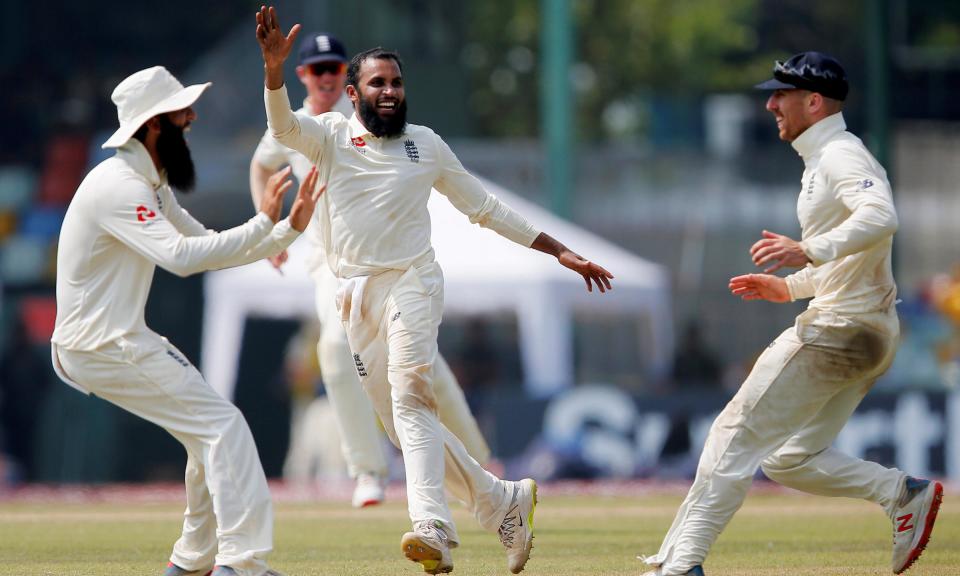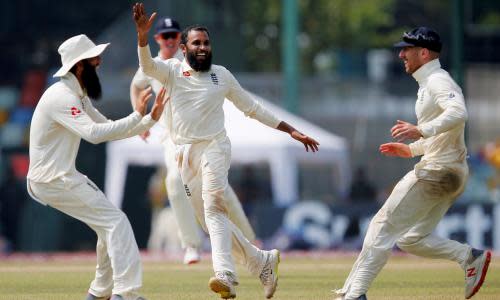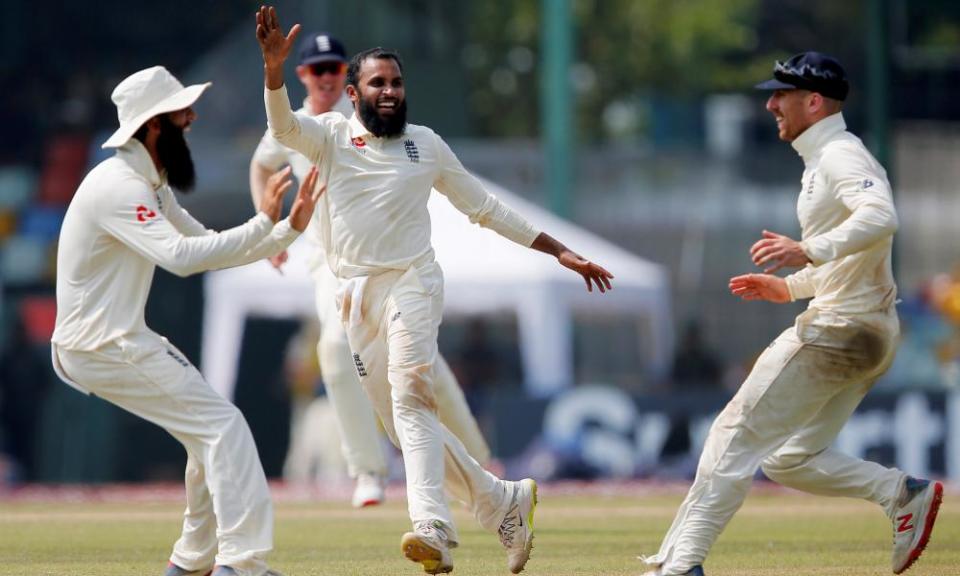Adil Rashid and Moussa Sissoko prove you can succeed second time around
One of the most inspiring characteristics of competitive sport is that it offers up more acts of redemption than The Lives of the Saints. Seldom are these little morality tales more satisfying than when they concern a player who has lost his way, his form, his confidence, the support of the crowd and, one imagines, the patience of his teammates.
Two recent examples, one in cricket, the other in football, have been particularly pleasing to witness. The first is Adil Rashid. Now 30, the leg-spinner is one of those guys who seems to have been promising for most of his career, without ever quite delivering. As far back as 2007, he was said to be the “best young cricketer in England” by his Yorkshire teammate – and future coach – Jason Gillespie, and went on to win young player of the year. But, having flirted around the edges of the England team, he slipped out of favour. By 2012, he was not only out of England reckoning, he was also dropped from the Yorkshire side.
Although he never requires much encouragement to say his piece, Rashid’s performances prompted Geoffrey Boycott to weigh in. “He’s never progressed, that’s the sad part,” Boycott said. “There are a lot of people in English cricket who wanted to have a leg-spinner playing for England but it’s not about the type of bowling, it’s the quality of bowling.”
READ MORE: Gossip: United 'to replace De Gea with Pickford', Ozil wants Inter Milan move
READ MORE: Man Utd flop Fred: I'm annoyed at Mourinho over lack of game time
READ MORE: Fury trainer slams 'disgraceful' verdict
Rashid, Boycott implied, lacked the quality. But it was something else that was missing from his game. Leg-spinning, perhaps more than any other kind of bowling, is about confidence. The fact is you risk getting hit for six on every delivery and if things go awry you can look utterly useless. The reason Shane Warne was so good at it obviously had a lot to do with his technique, his quality. But it was also about his confidence. He was never a man looking around for a bushel to hide his light under. Rashid’s not that kind of character – but then few people are. He can look reserved and unhappy, particularly if things are not going well, and there was a lot of heat on him after his decision to drop out of playing red-ball cricket for Yorkshire, particularly when he was selected this year to play Test cricket for England against India.
To say he underwhelmed in that series would be an understatement. In the second Test at Lord’s he managed not to bowl, bat or take a catch. But everything changed in the fifth and final Test, bowling against Lokesh Rahul, who was on 149, with his eye firmly in. Rashid landed a ball that jackknifed like no other since Warne’s famous “ball of the century” that did for Mike Gatting 25 years before. Thereafter, the confidence came flooding back. Against Sri Lanka, Rashid was one of the players of the series. There was a smile on his face and an unflappable determination, as he picked up career‑best figures. Had he not produced that ball at the Oval, things might have been very different. He might now be dropped, with everyone blaming chairman of selectors, Ed Smith, for recalling him in the first place.
But the beauty of sport is that he did bowl that ball. And everything, in one sense, followed from that.
Just as Smith is to be commended for bringing back Rashid under difficult circumstances, so does Mauricio Pochettino deserve plaudits for sticking by Moussa Sissoko. When the Frenchman was recruited from Newcastle in 2016 at a cost of £30m a lot of commentators, not to mention fans, wondered if Spurs and Pochettino had taken leave of their senses. It’s true that he enjoyed a fine Euro 2016 for France, but he was inconsistent for Newcastle and didn’t look suited to Spurs’ slick-passing style of football.
Sure enough, early performances suggested Sissoko was a panic buy, someone to acquire because he was available rather than because he was adept. His first touch left a lot to be desired and his second was no great improvement. And any sight of goal seemed enough to bring on a disorienting bout of vertigo. The groan of disappointment after Sissoko misplaced a pass became a familiar sound at White Hart Lane, dutifully making the journey with the club across to Wembley.
Whatever the Frenchman’s shortcomings, his hearing was intact. And it can’t have been easy to be the player the fans dreaded seeing on the team sheet, the guy who inspired a nervous intake of 50,000 breaths each time the ball came anywhere near him. What’s best for a player in that situation? Sometimes playing on only makes matters worse, as dwindling stocks of confidence decline even further, and match day becomes a psychological endurance test fraught with terror. It’s tempting to see Pochettino’s approach as inspired man‑management, playing him often, but far from always, in that first difficult year, and then more in the second, until he’s become practically a fixture this year. However, it may be that injuries to other players, and that £30m tag forced the Argentinian’s hand. Whatever the reason, Sissoko has come good this season. Not only has he regained that ability to burst from midfield that he sometimes displayed at Newcastle, his touch has dramatically improved, along with his positioning and defensive play. So much so that he can look on his best days, as on Wednesday against Internazionale, like the complete midfielder – though he hasn’t quite yet mastered the art of putting the ball in the net.
Whether Pochettino has benefited from judgment or luck, what’s evident is that he gets a big kick out of Sissoko’s renaissance. He’s not the kind of coach to publicly berate players or question their ability. José Mourinho has done that at Manchester United and it can be argued that he’s at least had some success with Luke Shaw and Anthony Martial, who have survived his character assassinations to establish themselves in the first team. But you don’t get the sense that it’s brought either the players or the manager much joy.
With Sissoko there seems to be a shared pleasure in his improvement. He knows that he wasn’t doing himself justice but he also knows that his manager stood by him, praising him when no one else could see anything worth praising.
No doubt he’s fitter than ever, and he has worked on his weaknesses in training. But the key thing is that he has regained his confidence. He could so easily have been sold on (if there had been any takers) but, like Rashid, he has seized his moment. Often that’s not the way it pans out. When it does, though, the often selfish, ruthless, commercialised world of sport redeems itself all over again.

 Yahoo Sport
Yahoo Sport 








































